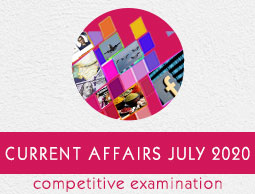
- Appointments
- Awards
- Bills & Acts
- Books & Authors
- Committees
- Deaths
- Defence
- Economic
- Environment
- Finance
- Important Days
- International
- Miscellaneous
- National
- Persons in News
- Places in News
- Regional
- Reports
- Resignations
- Science & Technology
- Sports
- National Education Policy 2020
- July 2020 - Exams Resources
- Current Affairs - Quiz
- Current Affairs - Test
- Current Affairs - PDF
Current Affairs July 2020 - International
1 - Sri Lanka appointed 5-member committee to examine concerns regarding development of ECT, JCT of Colombo Port
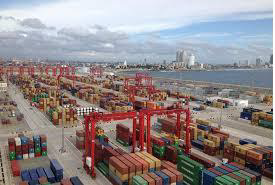
Sri Lankan President Gotabaya Rajapaksa has appointed a five-member committee to examine and report on the concerns regarding the development of East Container Terminal (ECT) and Jaya Container Terminal (JCT) of the Colombo Port. It will also look into agreements entered by Sri Lanka with other governments for Colombo Port.
Sri Lanka had signed a tripartite agreement with Indian and Japan for development of ECT. However, port trade unions are protesting against the agreement.
2 - FCC designates Huawei Technologies and ZTE Corporation as National Security Threats

The US Federal Communications Commission (FCC) has designated two Chinese companies - Huawei Technologies and ZTE Corporation as national security threats. The FCC has increasingly scrutinised Chinese companies as tensions grow between Beijing and Washington over trade, the coronavirus and security issues.
Huawei and ZTE have close ties with Chinese Communist Party and Chinas military apparatus. The US contends that Huaweis equipment could be used by China for spying.
3 - IMF approved an emergency financial assistance of 356.5 million dollars for Myanmar
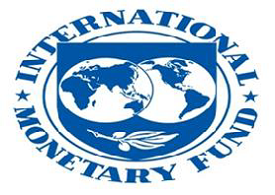
The IMF Executive board has approved an emergency financial assistance worth 356.5 million dollars for Myanmar to address challenges posed by the COVID 19 pandemic. It has been approved under the Rapid Credit Facility and Rapid Financing Instrument to meet the urgent balance of payment and fiscal needs of the country.
The emergency fund will also support the governments plans to boost spending especially on health and social safety nets. The Myanmar economy is being impacted by the outbreak of COVID-19, through a sharp decline in tourism and remittances and supply chain disruptions.
4 - World Bank predicts Myanmar growth rate to slide to 0.5%

According to the latest World Bank report, the economy of Myanmar is projected to grow by just about 0.5% in the fiscal year 2019-20. The report has further forecasted a contract of 2.5%, if the pandemic is protracted.
The GDP growth rate for Myanmar was 6.8 percent in 2018-19. Tax revenue is projected to decline by 6.0% during the current year. However, the report has projected the economy to grow at 7.2% in 2020-21, if Myanmar is able to control the economic impact of Coronavirus.
5 - Micheal Martin elected as new PM of Ireland
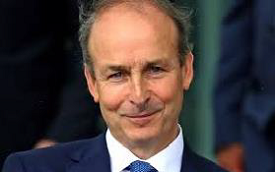
Micheal Martin has been elected as the new Prime Minister of the Republic of Ireland following the formation of a historic coalition government. The Fianna Fil leader will be leading a three-party league consisting of Fianna Fil, Fine Gael and the Green Party.
Micheal Martin will replace outgoing Prime Minister Leo Varadkar, who was highly popular in the country. Leo had rejoined the medical register to help health services during the peak of corona pandemic.
6 - Lazarus Chakwera elected as President of Malawi
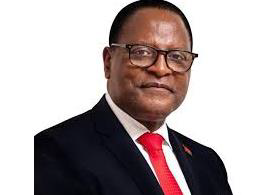
Lazarus Chakwera was elected as the new President of Malawi, after he secured 58.57% of votes in the elections. He defeated incumbent Peter Mutharika. In February, Malawi's constitutional court annulled Mr Mutharika's victory in the May 2019 election, citing vote tampering.
Mr Chakwera leads a nine-party coalition, the Tonse Alliance. He is the head of the Malawi Congress Party (MCP). Malawi is the second African nation to annul a presidential election over irregularities, after Kenya in 2017.
7 - Gudni Johannesson re-elected as President of Iceland
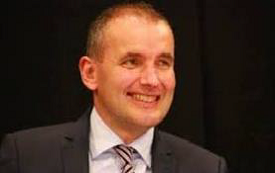
Gudni Johannesson, was re-elected President of Iceland with an overwhelming majority of the vote. He received 92.2% of the votes and defeated Gudmundur Franklin Jonsson. Johannesson was first elected as president of Iceland in 2016, becoming the country's youngest president, since its independence in 1944.
In Iceland's political system, president has no term limits. The position is largely symbolic and with limited power, but president has the power to veto legislation or submit it to a referendum. The Prime Minister of Iceland is Katrn Jakobsdttir.
8 - Russian President Vladimir Putin won the presidential polls
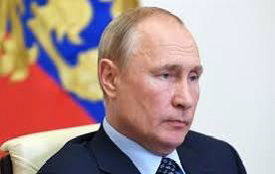
President Vladimir Putin has won a resounding victory in a nationwide referendum on Constitutional Amendments. The vote paves the way for Putin to remain President, until 2036. According to Russias Central Election Commission, more than 77% of voters supported the changes to the Russian constitution.
Mr Putin has been in power since 2000, either as president or prime minister. If he wins the March election, he will be eligible to serve until 2024.
9 - World Bank has upgraded Nepal to Lower-Middle Income Economy

World Bank has upgraded Nepal to Lower-Middle Income Economy while it has downgraded Sri Lanka to the Lower-Middle Income Economy. As per the 2020 Classification, India continues to remain a Lower-Middle Income country.
The World Bank assigns the worlds economies to four income groupslow, lower-middle, upper-middle, and high-income countries. The classifications are updated each year on July 1 and are based on GNI per capita in current USD (using the Atlas method exchange rates) of the previous year (i.e. 2019 in this case).
10 - The USMCA or NAFTA 2.0 came into force
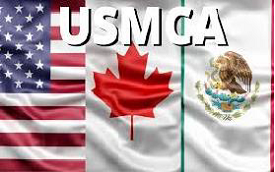
The US-Mexico-Canada Trade Agreement (USMCA), which is a new version of the North American Free Trade Agreement (NAFTA) came into force on 1 July 2020. While the USA calls the agreement USMCA, Canada has named it CUSMA and Mexico has referred to as T-MEC.
Among the differences between the USMCA and NAFTA are the revised Investor State dispute settlement provisions at Chapter 14 of the USMCA. Under the sunset clause, NAFTA will remain in effect for three years from this date for legacy investments and pending claims.
11 - China passed Hong Kong security law
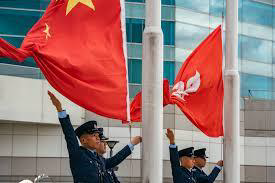
China has adopted the controversial Hong Kong security law that gives it new powers over Hong Kong. The new law effectively curtails protests and freedom of speech. It is also set to criminalise secession, subversion and collusion with foreign forces.
The law takes direct aim at the anti-government protesters strategy of disruption. It allows Beijing to seize broad control in security cases, especially during crises. The law focuses heavily on the perceived role of foreigners in Hong Kongs unrest.
12 - Israel successfully launched Ofek 16 spy satellite into space
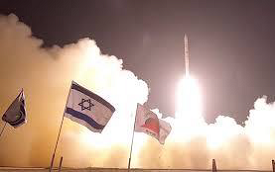
Israel successfully launched latest satellite in a series of military-operated spy satellites, named as Ofek 16. It was launched into low Earth orbit by using a locally-developed Shavit rocket from Palmachim airbase in central Israel.
Ofek 16 is an electro-optical reconnaissance satellite with advanced capabilities to capture high-resolution images of the Earth for the Ministry of Defence. This was the first launch of an Israeli spy satellite into space, since the Ofek-11 which entered orbit in September 2016.
13 - 15th meeting of India-EU Summit held in virtual
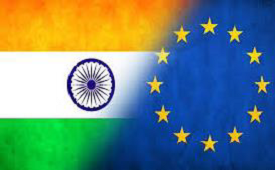
The 15th Summit between India and the European Union (EU) was held in virtual format on 15th July 2020. India was represented by Prime Minister Shri Narendra Modi. The EU was represented by Mr. Charles Michel, President of the European Council, and Ms. Ursula von der Leyen, President of the European Commission.
The leaders adopted the EU-India Strategic Partnership: A Roadmap to 2025 to guide cooperation between the EU and India over the next five years. They welcomed the signing of the Euratom-India Agreement on research and development co-operation in the peaceful uses of nuclear energy.
14 - India Global Week 2020 conference held in United Kingdom
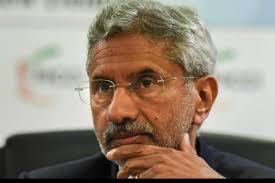
The India Global Week 2020 virtual conference was inaugurated by the Indian Prime Minister Narendra Modi, held at United Kingdom. It was organised based on theme Be the Revival: India and a Better New World.
Highlights of the conference are as follows:
Atma Nirbhar Bharat was the key feature of the event, where the keynote speakers talked about opportunities.
It witnessed participation from several industry captains and global thought leaders.
The forum discussed aspects relating to opportunities in India as well as the global economic revival post-COVID.
The forum witnessed tribute to sitar maestro Ravi Shankar by three of his most eminent students.
15 - Google Plus rebranded by Google as Google Currents

Internet search giant Google has rebranded its social networking platform Google+ as Google Currents. Google Currents is a platform, which enables its users to track what is happening in other departments across the organisation and connect with their colleagues to exchange documents.
The Google Currents is available for G Suite enterprise customers only. It is introduced with trending tags and more such other things. The new app is targeted more towards businesses and enterprise users.
16 - Maldives and Sri Lanka eliminated measles & rubella, ahead of 2023 target
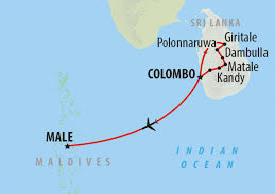
Maldives and Sri Lanka eliminated measles and rubella, ahead of 2023 target. Maldives and Sri Lanka became first two countries in WHO South-East Asia Region to achieve measles and rubella elimination ahead of the 2023 target.
A country is verified as having eliminated a disease, when there is no evidence of endemic transmission of that disease for over three years in the presence of a well performing surveillance system. Maldives reported last endemic case of measles in 2009 and of rubella in 2015, while Sri Lanka reported last endemic case of measles in 2016 and of rubella in 2017.
17 - First launch of Chinas Kuaizhou-11 (KZ-11) rocket failed
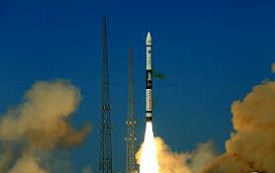
China confirmed its Kuaizhou-11 rocket failed after it was launched from the Jiuquan Satellite Launch Center in northwest China. Kuaizhou-11 rocket failed due to malfunction occurred during the flight. The Kuaizhou-11 is a larger version of the Kuaizhou-1A solid rocket, operated by Expace, a commercial spin-off from the China Aerospace Science and Industry Corp.
Kuaizhou, meaning "fast ship" in Chinese, is capable of delivering 1,000 kilograms to a 700-kilometer Sun-synchronous orbit.
18 - China launched Commercial Communication Satellite APSTAR-6D
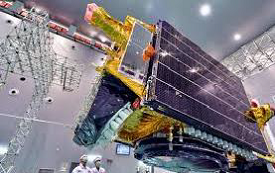
China launched high-throughput communications satellite APSTAR-6D. It marked the 18th rocket launched by China in 2020. The Apstar 6D satellite deployed from the Long March 3B rocket has total capacity of 50 gigabits per second. It is designed to provide Internet access to airliner passengers, cruise ships, fishing vessels, and other mobile users.
A Long March 3B rocket carried Apstar 6D spacecraft, which will meet all types of mobile satellite communication, as well as satellite broadband connection needs in the Asia-Pacific region.
19 - WHO initiated Independent Panel to evaluate global response to Covid-19

WHO has initiated the Independent Panel for Pandemic Preparedness and Response (IPPR) to evaluate the worlds response to the COVID-19 pandemic. The Panel will be co-chaired by former Prime Minister of New Zealand Helen Clark and former President of Liberia Ellen Johnson Sirleaf.
The Panel will present an interim report in November. Prime Minister Clark leads the United Nations Development Programme and President Sirleaf is a recipient of the Nobel Peace Prize.
20 - India becomes second-largest source of FDI for UK
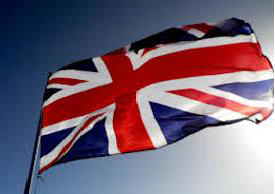
India has become the second-largest source of foreign direct investment (FDI) in the United Kingdom after the US in 2019. According to the data released by the Department for International Trade (DIT) inward investment statistics for 2019-2020, India invested in 120 projects and created 5,429 new jobs in the UK.
USA invested in 462 projects and created 20,131 jobs. Germany, France and China were the other three countries in the top five nations list.
21 - Lee Hsien Loong re-elected as Prime Minister
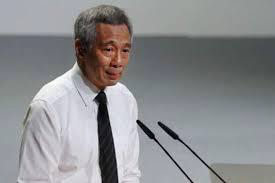
Prime Minister Lee Hsien Loong was re-elected as the prime Minister of Singapore after his party, Peoples Action Party, won the general elections with 83 seats out of total 93 seats. The opposition Workers Party won a record 10 seats.
Lee was first appointed as Prime Minister in 2004 and has been the PM of Singapore, since then. The PAP is also one of the worlds longest serving parties after those in China and North Korea.
22 - Andrzej Duda re-elected as President of Poland
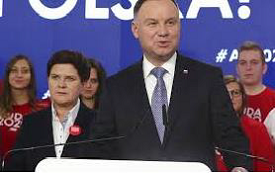
Poland's incumbent President Andrzej Duda was re-elected as Presdent of the country after he defeated Rafal Trzaskowski in the presidential elections. Mr Duda had won 51.2% of the votes. The total voter turnout was 68.18%.
Duda was earlier elected as President in 2016. Andrzej Duda is a social conservative allied with the government headed by the nationalist Law and Justice Party. On the other hand, Rafal Trzaskowski is a social liberal mayor of Warsaw.
23 - Indian-origin Chan Santokhi elected as new President of Suriname
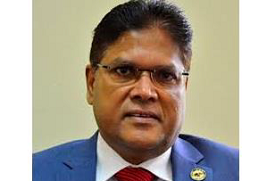
The National Assembly of Suriname has elected Chan Santokhi as the new President of the South American nation. Mr Santokhi is an Indian-origin former police chief. He will replace outgoing president Dsi Bouterse, who was found guilty of murder in 2019.
Chandrikapersad "Chan" Santokhi leads the Progressive Reform Party. Ronnie Brunswijk has been elected as vice-president. Mr Brunswijk leads the General Liberation and Development Party that forms part of the coalition government.
24 - Pakistan and China signed agreement for Azad Pattan Hydel Power Project
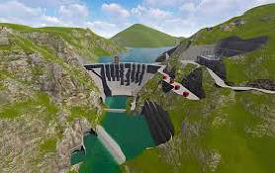
Pakistan and China signed an agreement for the construction of Azad Pattan Hydel Power Project under CPEC. The 700.7 MW project is a run-of-the-river scheme with a reservoir located near Muslimabad village located at River Jhelum and is expected to be completed in 2026.
The project is being developed under the China Pakistan Economic Corridor (CPEC), at an estimated cost of $1.5 billion. The project will be commissioned by 2024. The project will comprise a 90-metre-high dam, with a 3.8 sq km reservoir.
25 - Ossouka Raponda appointed as first woman Prime Minister of Gabon
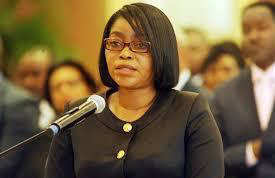
The President of Gabon, Ali Bongo Ondimba, has appointed Rose Christiane Ossouka Raponda as the first female Prime Minister of the nation. She took over from Julien Nkoghe Bekale. She was holding the portfolio of Defence Minstry prior to her appointment as PM.
Raponda is the sixth prime minister to serve under Ondimba after she succeeded her father in 2009. Gabon is situated along the Atlantic coast of Central Africa.
26 - UK stationed the HMS Queen Elizabeth carrier in the Pacific

The United Kingdom has stationed the HMS Queen Elizabeth carrier in the Pacific to counter China's growing assertiveness since the Corona pandemic. The move is as a part of an Inter-Parliamentary Alliance against China. The alliance was launched in June 2020 by United States, UK, Japan, Germany, Canada, Australia, Norway and Sweden.
Britain also has already implemented "Project Defend" to reduce Britains industrial reliance on China. Japan, India, Australia and the US also have joined hands to form "QUAD" to counter growing Chinese influence in the Indian and Pacific Ocean.
27 - Turkmenistan got observer status in World Trade Organization
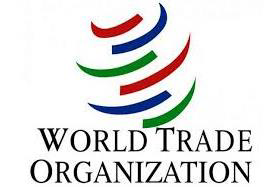
Turkmenistan has been granted Observer status by the World Trade Organisation (WTO) General Council. Turkmenistan has become the last former Soviet republic to establish formal ties with the WTO. The Central Asian country filed a request for Observer status in May and expressed willingness to trigger the talks on accession to the WTO within five years.
Neighbouring Central Asian countries -- Kazakhstan, Kyrgyz Republic, Tajikistan and Afghanistan -- have acceded to the WTO, while Uzbekistan has been in on-and-off negotiations on WTO accession since 1994.
28 - India, Maldives signed agreement for establishment of Emergency Medical Services in Male
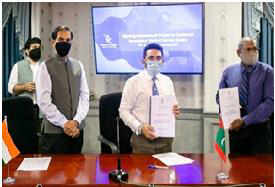
India and Maldives have signed an agreement for establishment of Emergency Medical Services in capital Male. It is one of the several small and medium projects that are being financed by India under a grant assistance of around 20 million US dollars for the neighbouring country.
The emergency medical service unit will enhance timely access to quality emergency care. It will increase collaboration between healthcare facilities and disaster response agencies, especially during critical times of need.
29 - UAE launched its first space mission to Mars from Japan
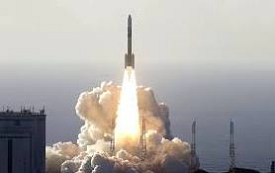
UAE launched its first space mission to Mars from Tanegashima Space Center in Japan. The space craft, Hope Probe, was onboard H2A rocket. It is the Arab worlds first interplanetary landmark mission, putting UAE firmly ahead of all the countries in the Middle East in the area of space and technology.
Hope Probe Spacecraft is expected to reach the Red Planet by February 2021, to coincide with UAEs 50th anniversary of its formation. The orbiter Hope is expected to take images and send back data of the distant Red Planet.
30 - SpaceX launched South Korea's 1st military satellite
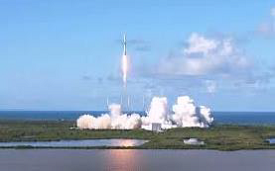
SpaceX launched a South Korean military communications satellite, ANASIS-II onboard the Falcon 9 Block 5 rocket. The launch took place from SLC-40 at the Cape Canaveral Air Force Station in Florida.
Army/Navy/Air Force Satellite Information System 2 (ANASIS-II), previously named KMilSatCom-1, is a secure communications satellite for the South Korean Agency for Defense Development. The spacecraft is the first dedicated South Korean military communications satellite. The ANASIS-II spacecraft is based on Airbuss Eurostar E3000 satellite bus.
31 - China launched its first independent unmanned mission to Mars
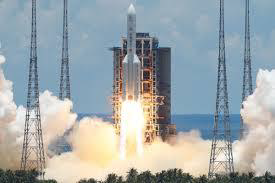
China successfully launched its first independent unmanned probe to Mars. The probe was launched onboard Chinas largest carrier rocket, the Long March 5 Y-4, from Wenchang Space Launch Centre on the southern island of Hainan.
The probe is named Tianwen-1 - which in Mandarin means Questions to Heaven. It is expected to reach Mars in February, where it will try to land in Utopia Planitia, a plain in the northern hemisphere.
32 - Nicaragua became the 87th Country to sign ISA agreement
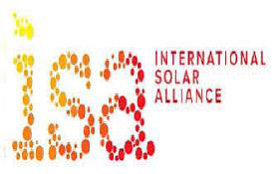
Nicaragua became the most recent country to join the International Solar Alliance (ISA) Framework Agreement. The agreement was signed by the Permanent Representative of Nicaragua to the United Nations Jaime Hermida Castillo at the Permanent Mission of India to the United Nations in New York.
The International Solar Alliance (ISA) is an alliance of 121 countries initiated by India, most of them being sunshine countries, which lie either completely or partly between the Tropic of Cancer and the Tropic of Capricorn. The initiative was launched by Prime Minister Narendra Modi at the India Africa Summit in 2015.
33 - India handed over 10 Broad Gauge diesel locomotives to Bangladesh

External Affairs Minister Dr. S. Jaishankar and Railways Minister Piyush Goyal flagged off virtually ten Broad Gauge locomotives to Bangladesh. Bangladeshs Railway Minister Md. Nurul Islam Sujan and Foreign Affairs Minister Dr Abul Kalam Abdul Momen received the locomotives on behalf of their government. Both sides saw the highest ever exchange of freight trains in the month of June.
These locomotives will help handle the increasing volume of passenger and freight train operations in Bangladesh. This is expected to significantly enhance the scope of bilateral trade.
34 - 300-year-old Kali temple reconstructed with Indian support in Bangladesh
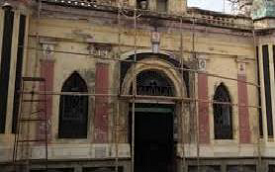
300 year old Sree Sree JoyKali Matar temple in Bangladesh has been reconstructed with Indian support. The MoU for the reconstruction of the temple at Lalbazar, Natore was signed in 2016. Government of India provided a grant assistance of Taka 97 lakh for the reconstruction of the historic temple.
The temple was built approximately 300 years back in the early 18th century. The Government of India provided developmental assistance to Bangladesh for the direct benefit of local communities under its High Impact Community Development Projects (HICDPs) scheme.
35 - India granted medical assistance worth about USD 1Mn to North Korea
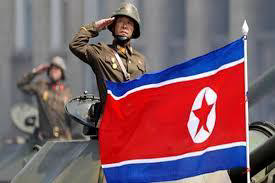
India has extended medical assistance worth about USD 1 million to North Korea in response to a request received from the World Health Organisation (WHO). India is sensitive to the shortage of medical supply situation in the Democratic People's Republic of Korea (DPRK) and decided to grant a humanitarian assistance of USD 1 million in the form of anti-tuberculosis medicines.
The consignment of medicines was handed over to DPRK authorities by Indian Ambassador to DPRK Atul Malhari Gotsurve in the presence of a WHO representative.
36 - China ordered closure of US Consulate of Chengdu
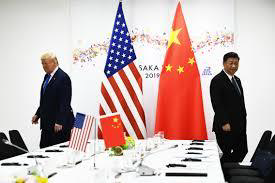
China seized the U.S. consulate in Chengdu following U.S. shuttering a Chinese consulate in Houston. U.S.A. had closed Chinese consulate based on suspicion that the consulate was a refuge for Chinese spies who tried to steal data from multiple facilities in Texas, including the Texas A&M medical system and University of Texas MD Anderson Cancer Center.
The Chengdu consular district is made up of the Provinces of Sichuan, Yunnan, and Guizhou, as well as the Tibet Autonomous Region and Chongqing City Municipality.
37 - Hichem Mechichi became new Prime Minister of Tunisia

Hichem Mechichi was appointed as the new Prime Minister of Tunisia. He succeeded Elyes Fakhfakh who resigned over the pressure by his coalition party and allegations of a conflict of interest.
Hichem served as Director General of the National Agency for the Sanitary and Environmental Control of Products, as Minister of the Interior in the government of Elyes Fakhfakh and as advisor in charge of Legal Affairs.
38 - IMF approved US$4.3 Billion in Emergency Support to South Africa
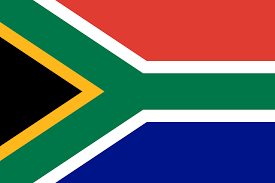
The Executive Board of the International Monetary Fund (IMF) approved South Africas request for emergency financial assistance of SDR 3,051.2 million (US$ 4,286.5 million or 100% of quota) under the Rapid Financing Instrument (RFI) to meet the urgent balance of payment (BOP) needs stemming from the outbreak of the COVID-19 pandemic.
The RFI will help fill the urgent BOP needs originating from the fiscal pressures posed by the pandemic. It is the largest amount given to any country to fight the coronavirus pandemic.